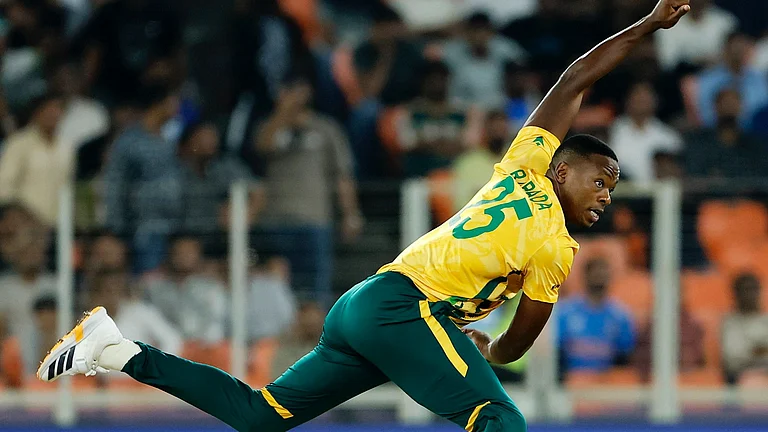"The detailed chapter on devolution of the proposed new constitution will be unveiled to the media by the middle of this month and will be tabled before the parliamentary select committee by February," a senior Justice Ministry official said. The peace package, drafted last year, will give wide-ranging administrative and financial powers to the country's provincial councils which will be renamed regional councils. The proposals which would make Sri Lanka a federal state, came under strong attack from Sinhala extremists and a section of the Buddhist clergy, who described them as an attempt to divide the country. The minority Tamils and Muslims, however, welcomed the proposal. "We have not made any major changes other than bringing in a provision where the central government can dissolve a council and some restrictions on the councils receiving foreign aid," the Justice Ministry official said. Under the amendment the central government can also dissolve a council if the unit threatens the sovereignty and unity of the country or deliberately violates the constitution. The original package did not give any powers to the centre to dissolve a council. The other change is that all direct foreign aid to the provinces has to be within the central government's aid policy. However, the government has left out the most contested issue—defining the boundaries of the council for the north and east, where the Tamil separatist Liberation Tigers of Tamil Eelam (LTTE) is fighting to establish a separate state. The two provinces were temporarily merged under the 1987 Indo-Sri Lanka accord and the Tamil parties want this to be made permanent. However, the Muslims, who form a substantial minority in the eastern province, want a separate council for themselves, while the Sinhalese fear that the merged unit would be the foundation for a separate state.
"The minority Tamils will be relieved to know the President is still committed to a political solution, but they will certainly want to ensure that the package that will be implemented will be a sound and effective basis for genuine power sharing. The Sinhala hardliners of course will want to whittle down the package to the barest minimum," says Paikiasothy Saravnamuttu, research consultant at the Centre for Policy Research and Analysis at the Colombo University.
The proposals will thus have to overcome major obstacles both in and outside Parliament before being passed. The new constitution will need a two third majority in Parliament and therefore the support of the main opposition United National Party (UNP). The UNP has so far kept silent on the package, but appears to be moving towards blocking it.
"The two principal problems are the position that the main opposition party will take and the question of the territorial unit of the north and east. The UNP is likely to be in favour of a unitary state, limited devolution and separate north and eastern provinces. And that would derail the entire process," says Saravanamuttu.
However, the government appears to be planning to put pressure on the opposition by holding local government elections at the end of March or early April. "The plan is to force all ruling party members to defend the package and test public opinion. If we can win substantial support among the Sinhalese after tabling the package, then the UNP has nothing to gain by opposing it but everything to lose," a senior cabinet minister pointed out. The UNP has traditionally depended on minority support and opposing the package would dramatically undermine its pluralistic credentials.
The plan to hold elections will also change the military priorities. The armed forces, their morale boosted by the victory in Jaffna and strengthened with new military hardware, are keen to capture the rest of the peninsula but will be forced to concentrate on the eastern province so that the government can hold elections there.
"If the government decides to hold elections we will have to change our tactics and clear the eastern province where the LTTE has taken control of many areas after we pulled out troops to the north," says a senior military official. Ironically, that would give President Kumaratunga the breathing space necessary to push through the package.

























